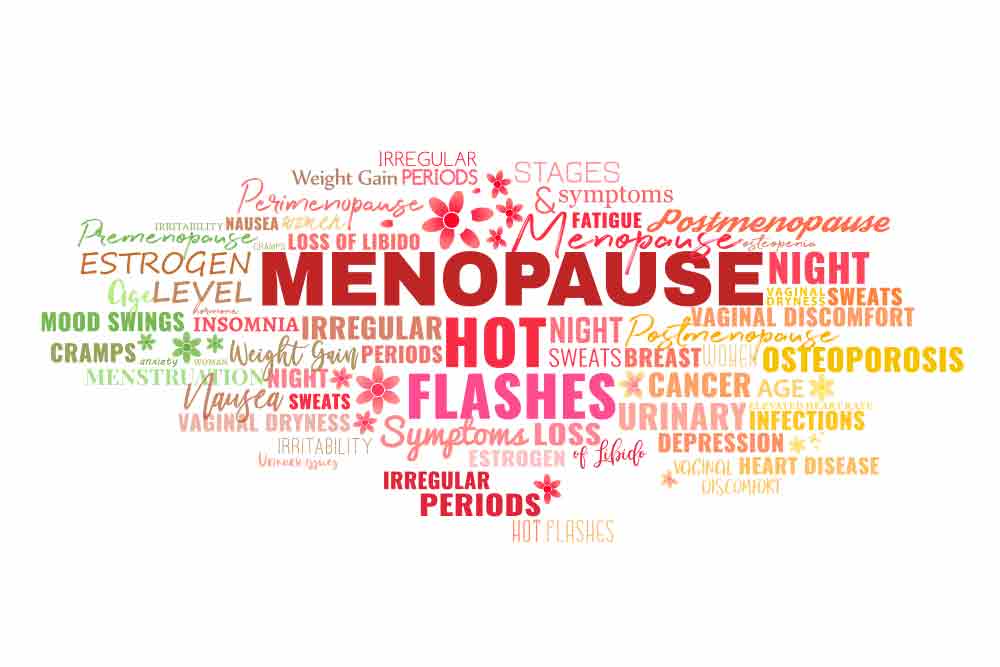
Read our guide to learn why you should care about menopause at work and what you can do to support employees experiencing it.
Paid or unpaid, women have been working in some capacity since the start of human history. For the sake of argument, let’s say 1869 was the official start of women’s employment in the UK. This was the year the UK Post Office employed a handful of female telegraphists. (They earned considerably less than their male counterparts.)
These pioneering (yet underpaid) women became the first female civil servants. Gradually, more women joined the Civil Service. Or, to be more specific, more unmarried women. Because up until 1946, any woman employed by the Civil Service would have to resign if she chose to marry. For 77 years, any woman would be legally forced to quit her job if she dared to wed.
What does this have to do with menopause at work? Not much. However, it illustrates how long it can take for workplace legislation to catch up with developments in gender equality.
And even now, professional women struggle because of a lack of genuinely equitable workplace policy or culture, with women’s health being no exception. This is a mistake.
World Menopause Day 2023
This article has been written to coincide with World Menopause Day – an event that falls on 18 October yearly.
It’s part of an ongoing campaign led by the International Menopause Society (IMS) to raise awareness about menopause.
Each event has a different central theme to match the evolving understanding of menopause and emerging health trends. This year, the focus is on cardiovascular disease affecting many women and has been linked to menopause.
(You can read more about the theme in the IMS’ official white paper.)
What is Menopause?
Menopause is when a woman stops menstruating due to a change in hormone levels. It’s preceded by perimenopause – when a woman may experience the symptoms of menopause but still have periods (although there will usually be a change in the normal pattern).
Menopause is natural and will affect everyone who has periods at some point in their life. Every woman’s experience will be unique but there are some commonly experienced symptoms and an expected age range for women to start menopause.
What is Menopause Age?
Women commonly experience menopause between the ages of 45 and 55, but it can affect some women earlier.
While it’s a natural development, it can also be triggered by certain conditions, such as surgery to remove the ovaries or uterus, or even some forms of chemotherapy.
Sometimes, genetics are also a factor and women become perimenopausal earlier than most without an apparent reason.
Physical Health Symptoms
Yes, menopause often comes with physical side effects. However, the range, duration and severity of menopause symptoms vary greatly.
Some women might experience all of them, others only one or two for a short time. But general menopause symptoms include:
- Headaches or migraines
- Muscle aches or joint pains
- Dry or itchy skin
- Heart palpitations
- Hot flushes (also referred to as hot flashes)
- Disrupted sleep
- Vaginal dryness, which can cause discomfort or itchiness during sex
- Recurrent urinary tract infections (UTIs)
- Weight gain or change in body shape
Not all of these will affect a woman’s ability to perform at work. However, any physical change may take some getting used to or cause a certain amount of stress or anxiety.

Mental Health Symptoms
This section is brief because it’s impossible to summarise every woman’s experience. It would also be irresponsible to promote the false assumption that menopause makes all women emotionally volatile or unable to focus.
With that being said, reported mental health symptoms include:
- Increased anxiety
- Low mood or self-esteem
- Mood swings
- Reduced memory or ability to concentrate (known colloquially as brain fog)
Menopause Treatment
As with most other health issues, a healthy diet, regular exercise and good sleep help with potential menopause side effects.
Looking after your mental well-being can also help manage the low mood or increased anxiety that can come with menopause.
The NHS has a more detailed breakdown of the steps to manage side effects and menopause treatment options available if symptoms are becoming too much to handle.
Why a Lack of Support Costs
According to statistics from the ONS, around 15.6 million women are working in the UK.
The number of women experiencing perimenopause or menopause is around 13 million. Obviously, not all women experiencing menopause are working, but there is significant overlap.
Research from the Fawcett Society, a charity that campaigns for gender quality and women’s rights in the workplace, suggests that one in ten women experiencing menopause have had to leave their jobs because of their symptoms.
And this figure isn’t surprising when eight in ten women say their employer doesn’t offer menopause at work training nor have a menopause absence policy – a fact that also comes from the Fawcett Society’s research.
No data can conclusively say how many women have had to abandon their careers or severely limit their aspirations because of menopause at work.
And we don’t know exactly what this is costing the economy.
But looking at the information we know, it’s plain to see that many women, often at an age where their professional abilities are peaking, have to quit their jobs because of a lack of menopause understanding or support.
Menopause At Work Legislation
There is no explicit legislation around menopause, which probably leaves a lot of women feeling like quitting is the only option when symptoms start affecting their ability to work.
Despite the lack of specific laws, women experiencing menopause at work have options if they feel their employer discriminates against them.
A recent court case saw a woman win a £37,000 payout after a judge found her employer had harassed and dismissed her unfairly. The employer, who was described in court as a “blunt” man with “little time or respect” for people who can’t match his work ethic, gave his employee no support nor opportunities to work flexibly when she couldn’t make it into the office due to physical side effects of menopause. Hopefully, his mistakes can serve as a warning to other like-minded bosses.

Legal proceedings like the one mentioned are made possible because other legislation protects women experiencing menopause at work, with three pieces of legislation, in particular, standing out:
Equality Act 2010
Menopause is not a ‘protected characteristic’ under the Equality Act 2010, but sex, age and disability are.
Employers who mistreat employees experiencing menopause may be found guilty of discrimination under this act since menopause exclusively affects women and often begins once they’re 45 or older.
Health and Safety at Work Act 1974
Under the Health and Safety at Work Act 1974, employers must offer employees a safe work environment.
An employer could be found non-compliant with this act if they allow workplace conditions to exacerbate the symptoms some women experience during menopause.
Management of Health and Safety at Work Regulations 1998
The Management of Health and Safety at Work Regulations 1998 requires employers to assess their workplace risk and establish control measures to eliminate or reduce any identified risks.
Employers may need to conduct specific or personal risk assessments considering employees experiencing menopause and any specific hazards. For example, changing the temperature to accommodate women experiencing hot flashes.
Workplace Support
Although legal protection for women experiencing menopause at work is still lacking, there has been one significant development in 2023 – The British Standards Institute (BSI) released specific guidance on menopause in the workplace.
Guidance issued by the BSI isn’t legally binding. Still, it’s a valuable tool for workplaces trying to do their best for their employees. The BSI’s menopause guidance covering menstrual health will help employers create more supportive, equitable, and productive workplaces.
Along with practical actions employers can take, it also highlights the importance of making cultural changes, with training being one of the best ways to achieve this.
Menopause Training
Educating staff on menopause helps improve workplaces in two key ways:
- It allows employees who aren’t experiencing menopause to understand and empathise with those who are
- It shows employees who are experiencing menopause that they’re valued, supported and respected by the organisation
These developments directly impact employee morale, which, in turn, can raise productivity and staff retention. It can also encourage employees experiencing menopause at work to stick with their company, recognising that support is available if symptoms affect their work.
Our Menopause Awareness course is an excellent place to start. It’s suitable for workers in any industry. It is entirely online, making it ideal for employers looking to train many employees simultaneously.
The course develops an understanding of menopause and provides practical actions you can take to support colleagues and staff experiencing menopause. It’ll help make your workplace more open, supportive and equitable. Because your female employees really shouldn’t need to wait another 70 years for fair treatment and inclusive policies.


















































































































































































































































































































































































































































































































































































































































































































































